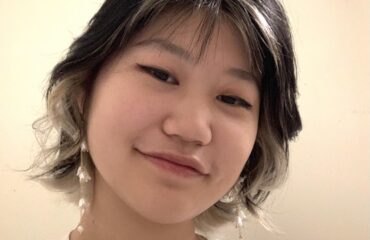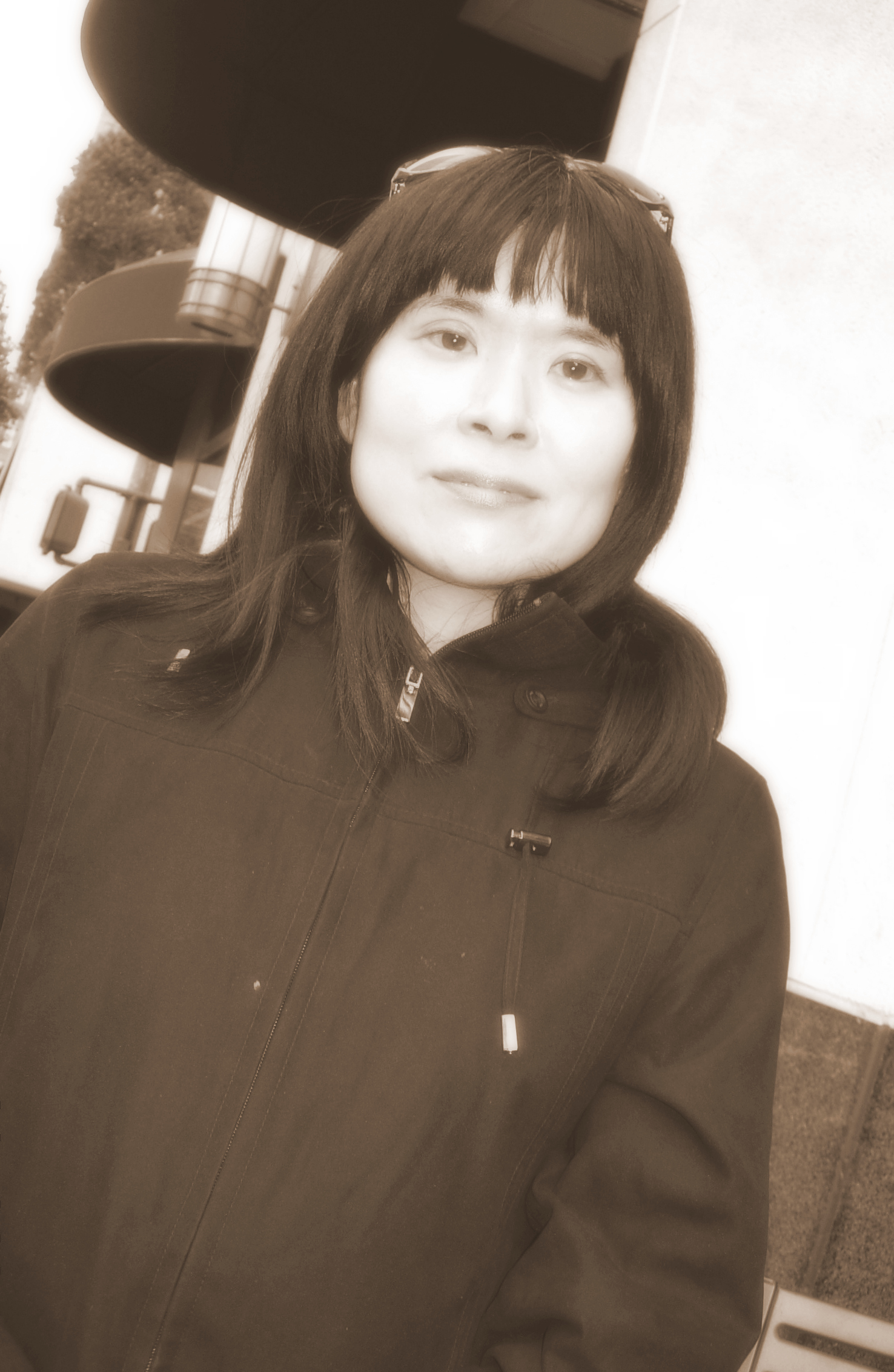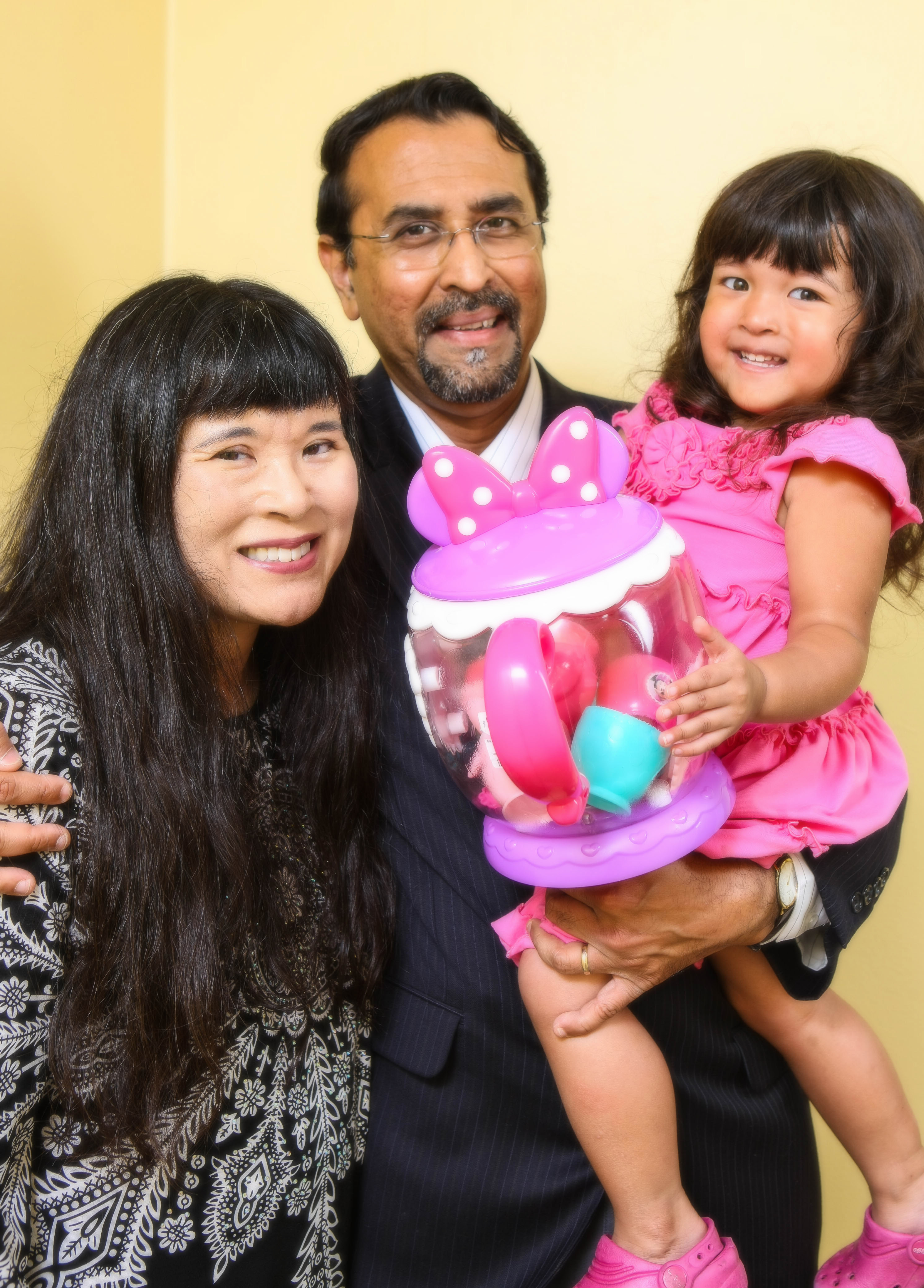THIS IS HOW I REMEMBER HER by Blas Falconer

I am spending the morning with the poetry of Claire Kageyama-Ramakrishnan, who died in May of this year.` Born and raised in Los Angeles, Claire received her B.A. in English from Loyola Marymount University, an M.F.A. in poetry from the University of Virginia, her M.A. in literature at the University of California at Berkeley, and a Ph.D. in literature and creative writing at the University of Houston. A full-time instructor at Houston Community College, she lived with her husband, Raj, a scientist specializing in HIV/AIDS research at Baylor College of Medicine; their young daughter, Vidya; and their three cats. She is the author of two collections of poetry, Shadow Mountain and Bear, Diamonds, and Crane.
Both poetry collections intimately address the experiences of first-, second-, and third- generation Japanese Americans in the 20th century. Specifically, the poems revisit the internment camps of World War II and, among other subjects, ensuing and often more subtle expressions of xenophobia. Of Claire and her poetry, Kimiko Hahn writes, “she draws us into a personal history that happens to be a part of American history and subsequent reparations. Here is a socially-conscious writer whose issues of war and passion bring us back and then forward again.” This is how I remember her and her poems.
*
Terzanelle: Manzanar Riot
This is a poem with missing details,
of ground gouging each barrack’s windowpane,
sand crystals falling with powder and shale,
where silence and shame make adults insane.
This is about a midnight of searchlights,
of ground gouging each barrack’s windowpane,
of syrup on rice and a cook’s big fight.
This is the night of Manzanar’s riot.
This is about a midnight of searchlights,
a swift moon and a voice shouting, Quiet!
where the revolving searchlight is the moon.
This is the night of Manzanar’s riot,
windstorm of people, rifle powder fumes,
children wiping their eyes clean of debris,
where the revolving searchlight is the moon,
and children line still to use the latrines.
This is a poem with missing details,
children wiping their eyes clean of debris—
sand crystals falling with powder and shale.
*
Claire and I met in graduate school at the University of Houston. Petite in size, but large in spirit, she was not one to be pushed around. She was exceptionally smart with a clear and distinct perspective of the world, one she seemed to trust intuitively, wholly. She doled out love and fierceness best with her unique sense of humor. Once, she brought a voodoo doll to poetry workshop. When she perceived that our discussions were becoming less than constructive, she placed the doll on the seminar table in front of her, gently reminding us why we were there, reminding us to respect one another, regardless of our differences.
A couple of years ago, Brenda Hillman encouraged a group of poets to let what makes each of us uniquely us be reflected in the poems, to not let those quirks be buffed out in revision. In regard to both subject matter and style, Claire knew this all along. I’m reminded, reading her poems, how much of Claire came through in her work. Her personality seems embedded somehow in the lines and the way that she approached the historical, the collective.
*
Amber Falls
I remember times I wanted you to die—
when you hit Mama
with your slippers, threw
fish knives at our brother,
locked yourself in the bathroom
and swallowed pills.
Sister, I’ll call you sister
because I never liked your real name
*
Where are you taking me?
Venice.
What for?
Coffee and books.
The Novel Café
is open until 2 a.m.
Inside, we talk over
ice cubes and espresso.
I sip lemon water again.
You nibble
the last crumb pebble
from a strawberry biscuit.
Downstairs, you flip through
Crime and Punishment. I browse through
Matisse and Edvard Munich.
I place the Red Odalisque
next to Anne Sexton,
The Scream near Robert Lowell.
*
At home, you warm
your flat fingernails against
a cup of hot chocolate, get up,
go to your room wearing
an oxygen mask. I clutch
a crumpled picture
of you, Sister, tugging my hair
as we huddled together
on cushions, in red and blue
kimonos. In the morning
I grind Jamaican coffee.
You appear with braided hair
and desert wildflowers.
I rename the sky after you,
I name the tears of our childhood,
Amber Falls.
*
As I raise two young boys, I see more clearly than ever how we are all imprinted with our own personalities, our own interests and perspectives, and this was so obviously true with Claire. Claire was Claire all the way through, and the poems demonstrate her spirit: wise and passionate. These days, with xenophobia and denial and fear on the rise throughout the country and the world, when our lives depend on the brave speaking out, reminding us where all of this might lead, we need Claire and her voice more than ever.
*
Origins of an Impulse
I can’t tell you how it happened, just that
it happened after wet concrete, a shade
more salmon than pink. Brown ants
hurried with the current claiming bread
crumbs. It happened after the seeds of
interest spilled through me, after the garden
unfurled its roots, I learned to tie shoelaces
and spell “sand,” “glass,” “sage,” “tar,”
“paper,” “apple,” and “orchard,” after
my cousin died, never aged. It happened
after my sister and I stood on the left side
of the plaque, after a dusty breeze flinging
sand in our eyes and hair blew our coarse
strands to and fro in mid-air, messing up
our parts, our usually straight hair. It happened
after the sand irritated, tickled the unbaked
spaces between our toes, our feet pressed
into the foam of our flip-flops. It happened
after my mother gave me a typewriter, sky
and light blue, some ink ribbon. I wrote
how much I loved her. It happened after
our neighbor poisoned our dogs, mailed
postcards calling us “Shits” and “Japs,”
after one dog died. I wanted to dig its body
from the ground. It happened in grade school
when classmates said I had the nose of a gorilla;
in high school, when a classmate pressed
her nose with her hand, mocked the flatness
of mine. I gave up yellow, my favorite color,
started a lifelong love of lavender, wrote of
my mother’s face in my face, staring at me,
her disdain when I dyed my hair red. It happened
with the anger of an electric typewriter, a dark
screened computer during college. It happened
when I saw my mother’s face in my face,
when I saw her face in my niece’s face
It happened with love, the impulse to write.
Work Cited
Hahn, Kimiko. Shadow Mountain. New York: Four Way Books 2008.
Kageyama-Ramakrishnan, Claire. “Amber Falls.” Shadow Mountain. New York: Four Way
Books 2008.
——-. “Origins of an Impulse.” Shadow Mountain. New York: Four Way Books 2008.
——-. “Terzanelle: Manzanar Riot.” Shadow Mountain. New York: Four Way Books 2008.




